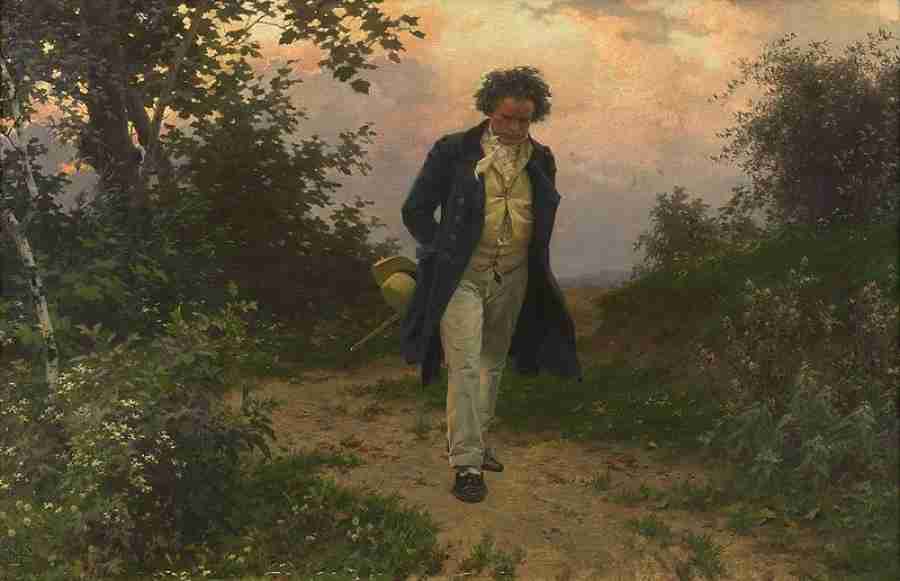
At the end of 1808, so much snow fell in Vienna that, on the evening of December 22nd, the city seems to have disappeared in a silence that forces to prepare for what is about to happen.
In the Theater an der Wien it freezes, but at the Christmas concert there is not a free place left.
On the piano sits the master himself: Ludwig van Beethoven.
Although he is only 38 years old, it will be his last public performance: the deafness that hit him ten years earlier rapidly worsens.
He wants to play his solo Concerto for piano and orchestra n.4 in G major: the stakes are survival.
In fact, it is precisely in these notes that he hid his painful secret, especially in the second movement Andante con moto.
The piece is inspired to the myth of Eurydice: a dialogue between Orpheus, the piano, and the underworld gods, the orchestra, to obtain the return of his beloved wife, who died from the bite of a snake during the wedding party. The movement begins with the fatal beats of the orchestra, which, however, note after note, lets itself be conquered by the penetrating melancholy of the soloist until it unexpectedly embraces the theme in this musical form: death is revealed to be weaker than love.
Beethoven puts in music the always open wound between the promise of happiness to which we feel called and his inexorable disappointment.
He transforms our deepest desire into notes: who and what we love must not end.
Orpheus sings the promise of happiness of life and its sudden and unacceptable end. For this he went down into the labyrinth of death: to get his beloved wife back at any cost.
How can we resurrect what is dead, revive what is lifeless?
Beethoven seeks the answer on his 88 keys: at the end of the movement, Orpheus' prayer bends the granite and fatal orchestra, Eurydice is returned to his beloved.
But while in the myth, Orpheus, turning back, will lose it in the journey of ascent, Beethoven invents a redeeming ending. In fact, the Concerto N. 4 ends in a joyful third movement, a lively rondo where we are told that the party of life does not end.
He is not only playing a brilliant piece, he is facing a bloody battle. He is the only one who knows it and who can fight it: rewrite the cruel fate of deafness, transform pain into beauty, convert death into new life.
And he saved himself.
Only a few years before that evening, in fact, despair had brought him close to suicide, as he had written the famous Heiligenstadt testament letter to the brothers: “It was not yet possible for me to say: Speak louder, shout, because I am deaf! Ah, how could it be possible to reveal precisely the weakness of a sense that I should have more perfect than any other, a sense that in the past had a perfection that certainly few people in my profession have ever had? These experiences almost led me to despair. It was not long before I ended my life. Only art has held me back. Ah, it seemed impossible to me to have to leave the world before I had accomplished everything I felt I was created for”.